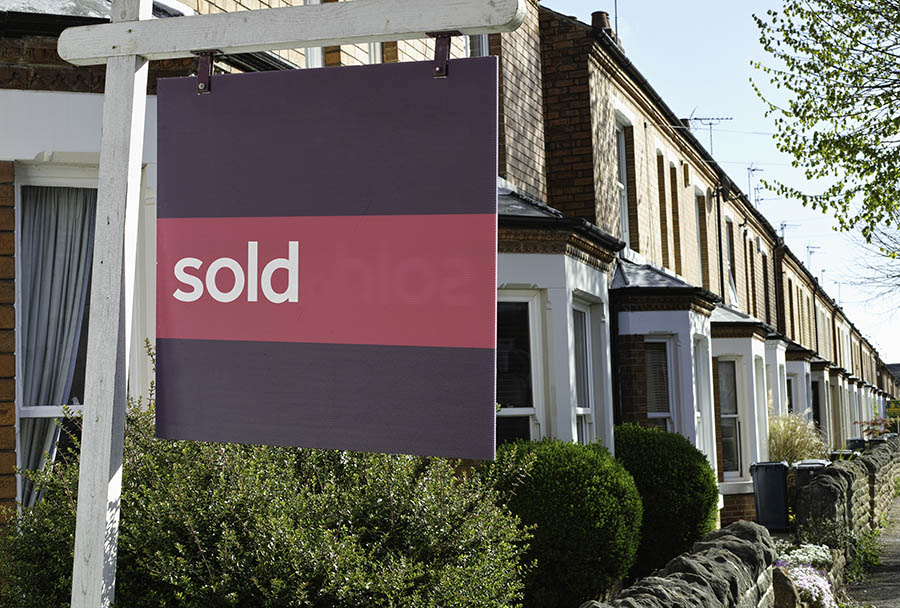Apply now and get a Decision in Priciple (DIP) to get a head start when looking at properties
Why should I get a decision in principle before looking for a house?
It was noted on Rightmove this week that the housing market has hit a new record high for the 3rd consecutive month and that houses prices have increased on average by £19,000.
The strong demand and limited stock of properties has left many clients in a bidding war and struggling to find or secure the property they want.
Although, not a magic wand, getting yourself in the best position when it comes to the house buying process can give you the edge over other buyers.
Clients often come to us before they even start looking for a property, this way we can let them know how much they can borrow, if that amount is affordable and also what is the best mortgage deal for your circumstances at that time.
In order to assist you with your property search, we can apply for a decision in principle with a lender. This way once you start offering to purchase a property you will be able to make the estate agency or builders aware that in principle, you can get the required funds.

Once you have secured an offer on the property of your choice, we will ensure that the lender who made the Decision in Principle still meets your needs and there is no other lender offering something better.
After placing your mortgage our administration team will be on hand to help you all through the journey, we will liaise with your solicitor, lenders, estate agents/builders and yourself to ensure everything goes smoothly until the day you get your keys.
Your journey doesn’t end with us then, we will be in touch prior to the end of any fixed/discounted rate to ensure we keep exploring the market to get you the best deal for your circumstances.
We ensure all our team give you a personal level of service as we rely on word of mouth for recommendations and are pleased to say we have been rated very highly by our clients on Trustpilot
Arrange a callback below or call us on 0330 232 0285
Decision in principle FAQ
A Mortgage in Principle, this might also be called an Agreement in Principle, Decision in Principle or Mortgage Promise. Most lenders will require you to do this before you make a full mortgage application.
The benefit of this is that less initial information is required compared to full mortgage application and it can be very quick to obtain. Also, it shows the seller of a property that, in principle, you can get the required funds. However, the caveat to this is that it is not a full mortgage application, your full details haven’t been checked, so there is still a chance you might be declined due to the lenders full acceptance criteria, once a full application is submitted.
This is confirmation from a lender that they’re willing to lend you a certain sum of money to help you buy a home. It does not guarantee that you’ll get the mortgage because they only conduct certain checks before granting the mortgage in principle. It does, however, give you a good idea of where you stand and how much the lender might be happy to lend to you.
The short answer is NO! You are free to use who you want to apply for a mortgage.
For a couple of reasons, Estate Agents and Builders are often keen to get you to use their in-house mortgage broker – but you don’t have to.
They may have targets to achieve and will receive an income if the mortgage is kept with them.
Also, the Estate Agent has a duty of care to their vendors to ensure that anyone proposing an offer is eligible to buy that property, this may just be the case of proving you have a Decision In Principle for a mortgage and that you have proof of deposit. A Builder will want to ensure you can afford to purchase the property you want.
It’s a good idea to get a decision in principle before you start looking for a property, that way you know the maximum lending you could get and added to your deposit, you’ll know the value of home you could buy. Often people do this the other way around and can get disappointed when they cannot achieve the purchase. We are very happy to discuss your requirements, make an initial assessment and obtain a decision in principle for you.
Even though you could still be turned down for a mortgage once you’ve received a mortgage or agreement in principle, due to the lenders full acceptance criteria, it does give you a rough idea of where you stand. If your income, debt, and spending levels don’t match the lender’s criteria for a mortgage even at this early stage, you won’t get the agreement you’re looking for. If you do get the nod at this stage, it is more promising.
If you’re unsure, it is better to speak to a mortgage adviser, such as Clever Mortgages before you even approach a lender for an agreement in principle.
This depends on the lender you go to, the type of search they carry out and how they record the search back to the credit reference agencies. One type is a ‘hard search’ and the other a ‘soft search’. As you may gather from the names of the searches, the ‘hard’ type will leave a footprint on your credit file to show that a mortgage has been applied for, along with the lenders name. A ‘soft search’ will still show the search and lenders name, but only to you and not another lender. Therefore, if you are unsure of your affordability, credit history, lending amounts needed and even deposit amount or source, it’s better to speak to a mortgage adviser.
Too many hard searches are not only going to impact your credit score, but they will also show other lenders that you are either getting declined elsewhere or you are approaching multiple lenders for another reason.
When you formally apply for a mortgage, the lender you have approached will check your credit record to see whether you meet their requirements. This is a full credit check (hard search).
However, if you’re only requesting a mortgage in principle, you’re essentially seeing if a lender is willing to lend you money to cover a mortgage. You’ll need to complete a form that asks for basic information about your financial situation. This includes income, any debt you currently have, and your outgoings. You’ll also need to add your address details, usually for the past few years.
The lender will then check your information against the details held by various credit reference agencies. The lender simply wants confirmation that the information you have given them is accurate. If it is, they may well approve a mortgage in principle.
It’s important to remember that being approved for a mortgage in principle doesn’t mean you’ll automatically be approved for a mortgage, it’s a very good start though. When you formally apply for your mortgage, the lender will assess further information about you, that being, your income and job, outgoings, any debts. They will also carry out a basic assessment of the property. This means that you could get declined once a full mortgage application and supporting documentation have been assessed.
This shows why it is a sensible idea to check your credit history and other relevant mortgage requirements with a mortgage adviser to ensure you are approaching the right lender for not only a decision in principle but that will accept you for a full mortgage application..
A mortgage in principle is based on limited information – and other factors could jeopardise the chance of getting a mortgage when the time comes to apply.
It can last anywhere between 30 and 90 days, depending on the lender. Make sure you know the terms ahead of applying. Some might agree to renew the agreement for another period before the first agreement expires. You can check this beforehand, so you know where you stand. If the agreement does expire, you’ll need to go back to the beginning and apply again.
Do you need help with a mortgage in principle application?
The experienced brokers at Clever Mortgages have helped many other clients get a mortgage in principle. Many have gone on to get the mortgage they need to buy the property they have set their heart on. We may be able to help you too.
Our extensive knowledge of both mainstream and lesser-known and specialised lenders means that we could find the ideal lender for you – one that aims to help people like you. Some people stand a far better chance of getting a mortgage if they go to specific lenders. We’ll guide you through the best options and help you wherever we can. Call us free on 0330 232 0285 today, request a callback, or fill in our online form to get in touch.
At Clever Mortgages, after an initial conversation, we can supply you with a Decision in Principle letter that will provide the details the Estate Agent or Builders needs.
We can also check your deposit source and confirm the acceptance with a lender. This will save you time, if say you are registered with multiple Estate Agents, of which each wants you to have an appointment with their Mortgage Broker.
That said, even if you do speak to the Estate Agents or Builders broker there is no obligation to go with them.
Some Estate Agents and Builders may be restricted to which lenders they can approach when it comes to mortgages and you may not get the best deal for your circumstances or be told there aren’t any lenders for you. As bad credit specialists, Clever Mortgages have the knowledge to cover all areas of lending.
As with most things in life it is worth finding someone who can shop about and search the market for that Mortgage which is tailored to your needs. Especially as the lenders processing times, criteria and Loan to Values have become more strict.
A Mortgage Specialist, such as ourselves, with access to 100s of lenders, is able to look at each bank and building societies lending criteria but we also have built good relationships with the underwriting managers so we know where lending criteria can also be flexed.
Arrange a callback below or call us on 0330 232 0285
One question we get asked nearly every day is whether clients must use the Estate Agents or Builders Mortgage Broker.
The short answer is no




